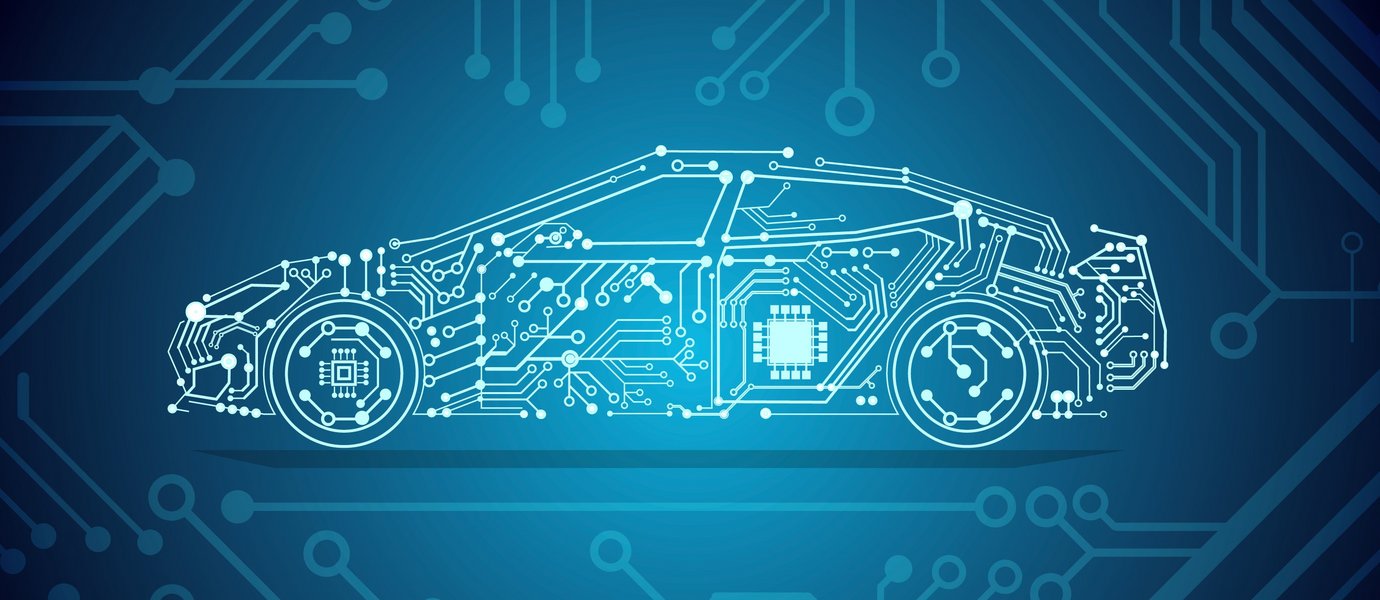Fahrzeugtechnik/Fahrzeugsystemtechnik (Online degree program)
Do you want to help develop vehicles of the next generation and learn more about production and service?
The seven-semester online degree programme in Automotive Engineering/Vehicle Systems Engineering aims to provide our students with the best possible preparation for their career entry or advancement.
The online programme makes it possible to obtain the B.Eng. degree while working.
All the necessary technical and methodological skills are taught in a practical way during the programme. The Faculty of Automotive Engineering utilises synergies arising from the different specialisations of its institutes.
Facts at a glance
why Automotive Engineering at Ostfalia?
- Practical teaching: laboratories, workshops and realistic projects.
- Innovative teaching content: Vehicle networking and digital methods.
- Top career opportunities: Excellent contacts to the automotive and supplier industry.
- The degree programme prepares graduates comprehensively for employment in responsible positions in companies in the automotive industry, the automotive supply industry and their environment. In addition, the degree qualifies students for a further Master's degree programme and, with this additional professional qualification, opens up the possibility of a doctorate.

Our goals - future-orientated and innovative
Your cookie settings have blocked this video.
We offer you a future-orientated apprenticeship that combines classic vehicle technology with modern digital technologies:
Information and communication technologies (ICT): networking and data communication in vehicle technology.
Simulation and development: use of virtual methods to optimise vehicle components.
Sustainability: focus on resource-saving technology, alternative drives and innovative recycling processes.
After graduating, you will develop visions for the mobility of the future and contribute to the transformation of the automotive industry as a specialist.
Study programme
1.-2nd semester:
The first two semesters each consist of 6 compulsory modules in which you will learn the most important basics of automotive engineering. These include, for example
- CAD
- Mathematics
- Computer science
- Electronics and measurement technology
- Strength of materials
3.-4th semester:
The third semester consists of 3 compulsory and 3 compulsory elective modules. In the fourth semester, you have 4 compulsory and 2 elective modules. You choose the compulsory elective modules according to your interests. The topics include, for example
- Control engineering
- Dynamics
- Simulation
- Vehicle design
- Signals and systems
In the 5th semester you have a practical phase in a company of your choice.
In the 6th semester, you have one compulsory module and 5 elective modules, including topics such as
- Automation
- Vehicle concept development
- Vehicle safety
- Sensors and actuators
- Systems engineering
In the 7th semester you have 3 compulsory elective modules, an interdisciplinary project and write your Bachelor's thesis
Full-time study programme
The full-time programme takes about 40 hours per week.
Part-time study programme
The degree programme is also suitable for part-time study. Each student is responsible for drawing up their own individual study plan. Students can adapt the number of modules to their individual time constraints. When compiling the individual study plan, the content-related dependencies between the individual modules (PDF, 281.27 KB) (opens in a new window), (not accessible)must be taken into account. As some courses can only be taken in the summer semester and others only in the winter semester, this must also be taken into account when planning the individual course of study (so-called yearly operation).
For enrolment purposes, it is irrelevant whether you wish to study part-time or full-time. It is possible to switch between the two options at any time during the degree programme.
Special features of the online degree programme
Organisational framework
The programme is largely technology-supported via the online platform Moodle. Communication with lecturers mainly takes place in the form of evening video conferences. These are usually held from Monday to Friday between 5.30 pm and 8.30 pm.
In addition, there are face-to-face appointments that require personal attendance on the Wolfsburg campus. This mainly concerns labs and examinations. They are usually on Fridays (afternoons) or Saturdays (all day if necessary).
As part of a full-time degree programme, there are around 15 days per semester with on-site events or examinations in Wolfsburg. This number is reduced accordingly for part-time students. Online students are enrolled at the university as normal and can make use of all university services, such as the library and computer centre.
Participation in online teaching
After enrolment, all students receive access data to the Moodle system. This is where you register for the modules you wish to take each semester. Most of the course content can be worked on at home on your computer and is provided by the lecturer, e.g. in the form of instructional videos, video recordings of lectures or exercises. This means that everyone can determine their own learning pace. Questions can be submitted to the evening web conferences and exchanged with lecturers and fellow students. If live participation is not possible due to time constraints, the recordings of the web conferences can be viewed with a time delay.
Recognition of prior learning
Coursework completed outside of our university will be recognised upon application, provided the formal requirements are met. Please note that no information will be provided prior to enrolment as to whether or not a previous achievement will be recognised. Students are therefore requested to refrain from making such enquiries.
After enrolment, a corresponding application must be submitted to the examination board of the faculty. This committee will check whether recognition is possible in the specific case and will decide on recognition.
Note: A relevant professional activity related to the vehicle (e.g. in an industrial company or a workshop) is usually recognised for the practical semester.
Your career prospects - a career in the automotive and mobility industry
A degree programme in Automotive Engineering opens up a wide range of career prospects, not only in the automotive and mobility sector:
Vehicle development
- Vehicle design: development and design of vehicle components such as bodywork, chassis and drive systems.
- Powertrain development: technology-open work on conventional, hybrid and electric drives.
- Aerodynamics and lightweight construction: optimisation of the vehicle structure for improved efficiency and performance.
Research and development (R&D)
- Innovation management: development of new technologies such as autonomous driving, AI and vehicle networking.
- Alternative drives: work on hydrogen, fuel cell or battery technologies.
- Vehicle safety: development of safety concepts such as airbags, crash structures and assistance systems.
Production and manufacturing
- Production planning: Optimisation of manufacturing processes and production lines.
- Quality management: Ensuring compliance with quality standards and norms.
- Process development: introducing new manufacturing technologies such as 3D printing or robotics.
- Additional qualification with KUKA, REFA and MTM integrated into the degree programme (without additional teaching hours and without extra examinations)
Management and consulting
- Project management: Management of complex development projects.
- Technical consulting: advising companies on technical challenges and innovation processes.
- Product management: Supporting the market launch of new vehicle models and technologies.
Supplier industry and services
- Automotive suppliers: Development of components such as brakes, electronic systems and sensors.
- Engineering services: Technical support and consulting for automotive manufacturers and start-ups.
- Testing and expert witness: Expertise TÜV / DEKRA / GTÜ / IHK etc.
Alternative careers
- Company foundation: Starting your own company in the field of automotive technologies or mobility solutions.
- Technical sales/procurement/quality assurance: Sales of technical products and vehicle components.
- Teaching and science: Lecturing at universities or research institutions.
- Agriculture and forestry: Tractors; harvesting machines, working machines
- Trailers: Trailers, semi-trailers, low-loaders, special trailer superstructures (e.g. cranes, swap bodies, compressors, etc.).
- Process development in vehicle construction: e.g. additive manufacturing (3D printing)
- National defence: Trucks, vans, armoured vehicles, etc.
Future trends & growth areas
- Energy management (electromobility, hybrid drives, combustion engines)
- Autonomous and connected driving
- Sustainable resource management
- Energy management
- Software and AI-supported mobility developments
The programme combines the best of 3 worlds: Classic vehicle construction, digitalisation and climate protection (resource conservation).
It is the best foundation for a career in dynamic and innovation-driven industries with a global reach.
Possible Master's programme
In addition to the Master's degree programmes offered by the Faculty of Automotive Engineering, you can also take advantage of the wide range of Master's degree programmes offered by Ostfalia or other educational institutions. The Faculty of Automotive Engineering offers 3 Master's degree programmes: Automotive Engineering (external link, opens in a new window), Automotive Systems Technologies (external link, opens in a new window)(part-time programme) and Automotive Service Technology and Processes (external link, opens in a new window).

